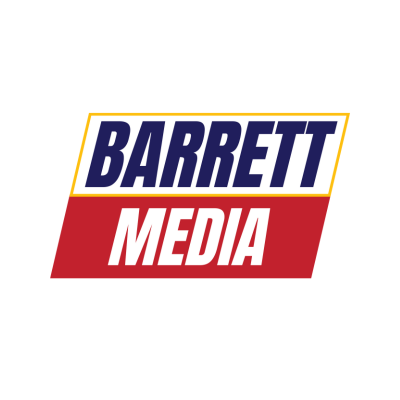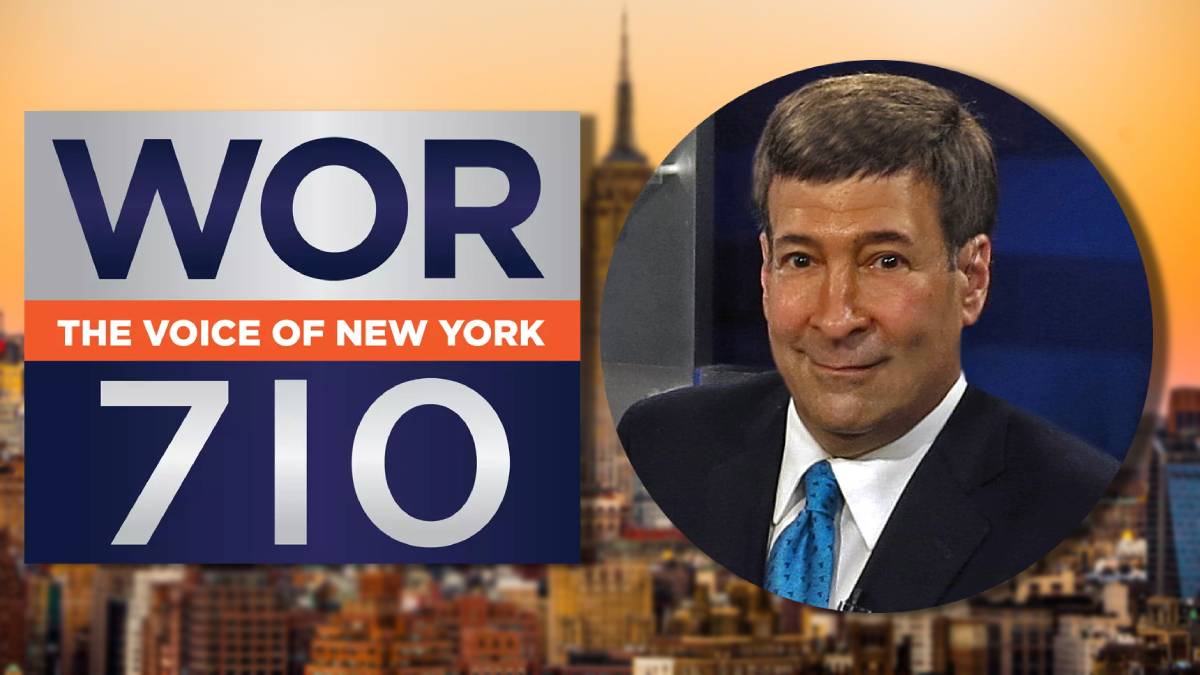He arrives at the iHeartMedia building every day, astounded by all the legendary voices he has to pass to the 710 WOR Radio studio. For decades, Mark Simone has been a consistent and undeniably reliable source of information that his listeners can trust. When communicating with his audience, Mark Simone wants to get the story right. His opinion matters little to him because he knows that the audience will return if he can build trust.
Mark Simone has worked his way up to eventual Hall of Fame status. That’s not a level that’s easy to achieve. He’s confident about the industry’s future and doesn’t allow the radio-weary skeptics to dampen his enthusiasm for his craft. Simone is constantly tweaking things, whether with his delivery, the number of stories he’s using, or what relatable topics he can use to draw his audience in. He understands the intimacy of radio and the importance of conversing with the audience. He recognizes that TV is more focused on aesthetics.
It’s more common than ever to hear talk radio hosts complain about censorship. It is one of the biggest stories and threatens to overshadow the upcoming presidential election. Talent across the industry feel like they’re being censored or muted by an out-of-control Big Tech.
Mark Simone shared how his Twitter analytics have nose-dived from 12-15 million monthly views to about 600,000. It’s a sentiment shared by major cable network hosts and columnists and possibly the most significant story ever impacting our industry.
We spoke with Mark Simone about common myths surrounding AM Radio, the differences between good and bad program directors, the media’s misconceptions about former President Donald Trump, and the pressures faced by talk radio hosts that listeners may not be aware of.
Ryan Hedrick: What are your thoughts on being nominated for the Radio Hall of Fame but not receiving an induction this year?
Mark Simone: They told me when I was nominated that 86 percent [of nominees] don’t get in the first time. You noticed that this year’s inductees have all been on the ballot for the last few years. There are 20,000 people selected, and then they pick 24 nominations. It’s quite an honor.
RH: How important is using honest information to establish trust with your audience rather than sharing personal opinions?
MS: My whole show is about inside information that I can give you. I don’t like a lot of opinions. Even my opinion, who cares what my opinion is? I know anybody and everybody, and I have a lot of sources. I can usually get you the inside story on anything. That’s one reason people listen [to my show]. If you’re right, most of the time, people will keep listening. It’s not about conservative or liberal; it’s about getting it right.
It’s not a good show unless both the DNC (Democratic National Committee) and the RNC (Republican National Committee) are on the phone complaining after you get off the air. If they’re not, you haven’t done your job. I attack Republicans as much as I attack Democrats.
RH: What has changed with the news/talk format since Rush Limbaugh passed away?
MS: We love Rush, but it wasn’t a change caused by anything with Rush. Even Rush would tell you that his show was always evolving, always changing. The same thing with my show; it’s always changing. Sometimes, that’s picking up the tempo or the pace. You used to be able to do one topic for 10 minutes, but now it’s 1-2 minutes. You used to have to do 2-3 topics per show. Now? You might do 45 [topics]. You’re in the Twitter world with more points and fewer words. You have to keep moving.
RH: How can you tell if your topic on-air isn’t generating many reactions?
MS: Bill O’Reilly taught me that a topic has to have an emotional connection to the listener. If you talk about fiscal policy, a lot of people listening don’t have any connection to that. But if you start talking about putting red light cameras up or speed traps, people are connected to that. They feel that they want to hear about that.
RH: What does the media get wrong about former President Donald Trump?
MS: Everything (laughs). I’ve known the guy for 35 years. He is the nicest guy in the world. I can tell you thousands of stories about acts of kindness that he’s done for people that could do him no good. He’s the nicest guy in real life. He’s brash and he’s boisterous. In real life, there’s nobody nicer and down-to-earth than him.
When he walks into Trump Tower, he knows everyone from the janitor to the window washer. He knows the names of their kids. I know people that were in the Reagan administration and the Trump administration. They’ll tell you that the Trump administration was a much kinder place. I worked with him for years on the Police Athletic League board. He never talks about it, but he devoted 30 years of his life to helping minority kids.
RH: Do you believe that Big Tech is censoring people? If yes, how does it affect you?
Mark Simone: There is definite censorship going on. I looked at my Twitter analytics, and I used to do sometimes 12-15 million views a month. Now, suddenly, it has dropped to 600,000. I thought it was just me, but then I went to Fox News to do a show, and I asked every host and conservative columnist, and they all had the same thing [views significantly reduced], and some have had their shadow bans lifted, but I still have mine on.
The worst is Facebook censorship. They are just awful. I’ve received violations for just a very funny meme about President Joe Biden that nobody could take seriously. Facebook is the worst when it comes to censorship.
RH: Some automakers have been considering eliminating AM radio. What do you think about this since you are currently on the AM band?
MS: There are a couple of myths about AM Radio. There’s always a myth about it dying. I saw this trade magazine article, and it said, ‘This is it; AM Radio is dying.’ It was from January 1966. I mentioned this on the air, and a listener sent me an article from 1948, when television was invented. They’ve always been saying AM Radio is dying. Talk radio is bigger than ever. AM Radio is doing very well. 83 million people listen to AM Radio every week. Only 28 million watch network television, and only 25 million read newspapers.
You could argue that the demographics are older, but we don’t worry about that. The only problem we have is that we have too many commercials. I hate to say that, but we have 5–6-minute breaks. We’re just sold out as far as advertising: we have the smartest audience and the richest and most upscale audience.
RH: What pressure do you think talk radio hosts are under that the listening audience may not be aware of?
Mark Simone: That’s one thing about talk radio that people don’t realize. It’s a lot of pressure when millions of people are listening to you, and you have to talk for 20 minutes at a time and keep those people listening. I do a lot of TV shows. But when you’re on TV and sitting on a panel with two other people, you only talk for about two minutes. The host does everything.
But with talk radio, they point at you, and the light goes on, and you have to talk for the first 20 minutes, and it usually starts with a monologue. I fill in for Hannity a lot. That’s 17 million listeners. That’s a lot of pressure for anybody.
RH: Tell me about the management team at 710 WOR. What are their qualities, and how do they contribute to your success?
MS: You have Tom Cuddy, who’s just about the most experienced program director working in New York. He’s run dozens of stations, networks, and everything. We also have Thea Mitchem, who runs the whole cluster. She’s a programming genius. You have Bernie Weiss, who runs iHeart New York and is a sales genius and just wrote one of the best-selling books about sales. It’s like an all-star lineup of executives.
When I go to work, it’s like walking through the Radio Hall of Fame. When I get off the elevator, to get to my studio, I have to walk by Jim Kerr, Elvis Duran, Charlamagne Tha God, and Angela Yee. And, on the way out, I’m passing Angie Martinez, Sean Hannity, Clay Travis, and Buck Sexton; it’s an amazing place.
RH: What is the difference between a bad program director and a good program director?
MS: A bad programmer wants to hear what he likes. He is totally tone-deaf to the audience. A good program director has a good ear and is a genius with numbers and metrics, data, ratings, marketing, and surveying people.
RH: How much longer do you want to keep doing talk radio?
Mark Simone: I didn’t know it had an ending (laughs). iHeartMedia is the best audio/radio operation in the world. I asked somebody one day, ‘What if we just go away?’ They said, ‘We’ll just go to Amazon’, because apparently, Amazon is trying to get itself into the talk radio business. Very quietly, Amazon is trying to develop talk radio. So, don’t think it’s dying; Amazon doesn’t go into dying businesses.
I’ve talked to different agents. The person I talked to was a great agent. They’ve all told me they’ve been approached by Amazon looking for executives and talk radio talent. They are testing it behind the scenes. Amazon is putting together this thing where anyone can do a talk show, anybody can do a podcast, but what I’m talking about is quietly, behind-the-scenes, they’re talking to some serious people about doing it for real. Real professional talk radio.










